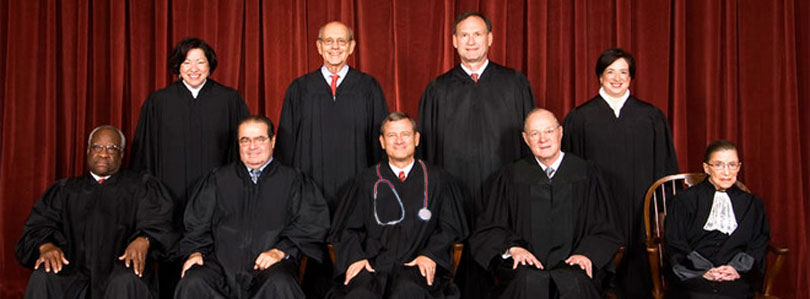Uncertainty over ObamaCare Supreme Court Ruling Bedevils Business Community
“Uncertainty” is the operative word for business owners who are reticent to begin hiring new workers until after the U.S. Supreme Court settles the constitutionality of President Obama’s health care plan.
That ruling is expected any day now, and it could translate into higher insurance costs and fewer consumer options unless a majority of justices strike down at least part of the law, warns Tom Mrva, chief executive officer of Lighthouse Computer Services, based in Lincoln, Rhode Island.
Over half of the states, and several individual plaintiffs, have brought suit against the Patient Protection and Affordable Care Act (PPACA), commonly known as ObamaCare. On January 31, 2011, District Judge Roger Vinson held that the law is unconstitutional because it exceeds congressional authority under the Commerce Clause. The Eleventh Circuit Court of Appeals later upheld Vinson’s ruling. The U.S. Supreme Court heard oral arguments in March, and a decision is expected before the end of June.
“If the law is upheld it means the businesses will need to cut back on their medical plan, or cut back on the number of employees they would like to hire,” said Mrva. “The whole premise of ObamaCare was to provide extra coverage, but instead it is just costing us a lot of money. The law is impacting my business and my customers; it is causing total confusion.”
Lighthouse employs over 100 people. The company was founded in 1995 and specializes in enterprise security and other IT services. Mrva is also a board member of the RI Center for Freedom & Prosperity, of which the Ocean State Current is a subsidiary.
A key question concerns whether or not the individual mandate, which requires all Americans to purchase insurance, is severable from the rest of the legislation. Judge Vinson ruled that it is not.
He wrote: “The individual mandate and the remaining provisions are all inextricably bound together in purpose and must stand or fall as a single unit … Because the individual mandate is unconstitutional and not severable, the entire Act must be declared void.”
If the Supreme Court leaves all, or even part, of the law in place, Ernie Yenke, president of Lighthouse, is concerned that it may give further impetus to new laws and regulations.
“The question then becomes what next?” he said. “The feds would be further emboldened to introduce more intrusive policies without any regard for constitutional restraints.”
But if the law is struck down, Yenke anticipates that business activity could pick up sooner than is commonly thought.
“Some people think businesses would wait until after the 2012 elections before they make any firm decisions,” he observed. “But if this law is knocked out that removes a lot of the uncertainty and businesses can start planning ahead.”
In February, a Gallup Poll showed that almost half of small business owners cited potential health care costs as the primary reason they were not hiring.
Sean Riley, the legislative analyst for the Health and Human Services Task Force at the American Legislative Exchange Council (ALEC), points out that, in 2014, PPACA’s health insurance tax (HIT) will impose additional burdens on small businesses. The tax will cost in excess of $87 billion while it is implemented over a ten year period, according to a paper Riley submitted for the Jefferson Policy Institute.
“While uncertainty is causing employers to hold back hiring now, future taxes are almost certain to stifle growth moving forward — it’s hardly surprising that an unprecedented bureaucracy might not be in the best interest of entrepreneurs and enterprise,” he wrote.
In contrast, a new poll from the Small Business Majority shows half of small business owners want the law upheld. But a careful reading of the actual results shows the business community is opposed to the mandate and other key provisions, Riley noted.
“Even though proponents are touting the line that ‘half of small business respondents want the law be left mostly intact,’ the key word is ‘mostly’ — the details of the report reveal that 86 percent of the small businesses surveyed don’t want the law to stand as is [question 6],” he said. “Over half opposed forcing people to have private or government-provided insurance, which the administration itself argued was necessary for other provisions to survive.”


